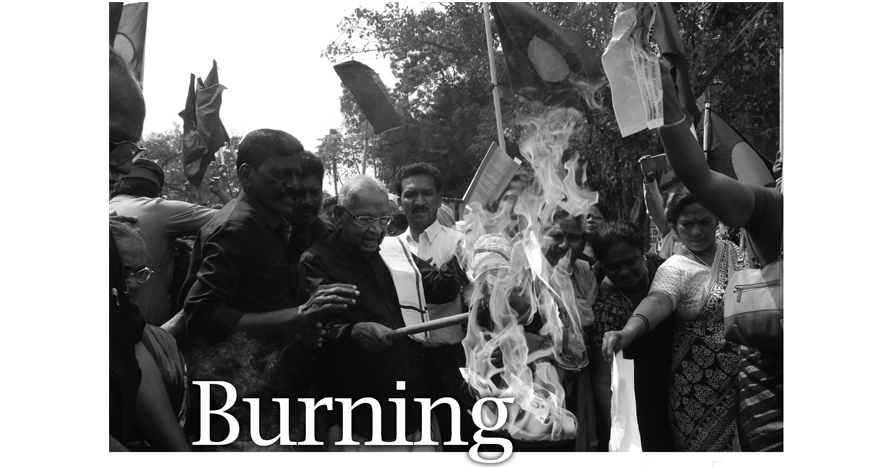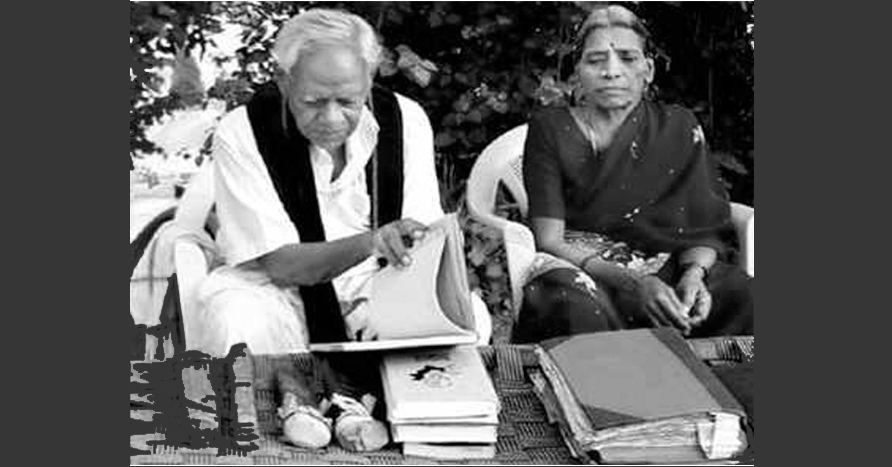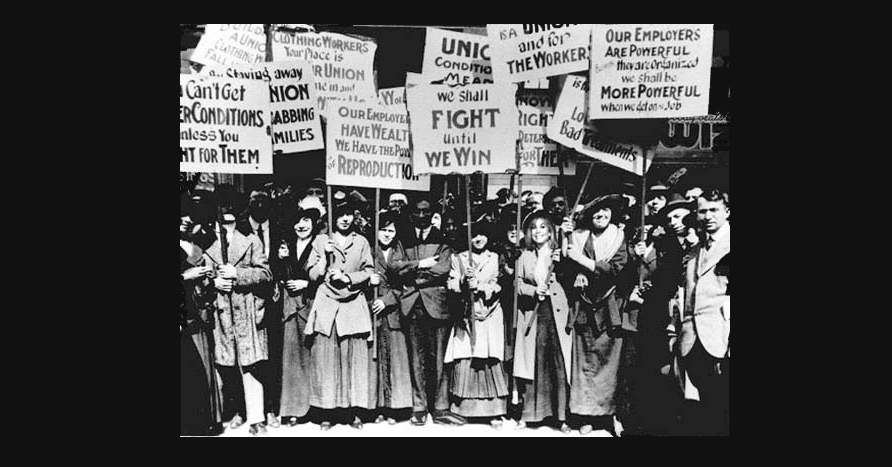A. Ayyasamy
To pay respect to Gauri Lankesh, a condolence cum portrait unveiling meet was organized by Dravidar Kazhagam (DK) on 10th September 2017 at Periyar Thidal, Chennai. Dr. K. Veeramani, President, DK was presiding and the portrait was unveiled by veteran journalist N.Ram (The Hindu). Rationalist-Economist Prof. Dr. M. Naganathan and prominent journalists R. Gopal (Nakeeran), A. Kumaresan (Theekathir) and Indrajith (Jansakthi) participated. All the participants condemned the barbarian killing of Gauri Lankesh.
It was Tuesday 5th September.
She had penned the editorial for her popular weekly, and decided to call it a day. As usual she left her office by her car and reached her residence at Rajeswari Nagar at Bengaluru around 8.00 p.m. Minutes after she got down from her car, an assailant who was waiting for her, shot at her point blank and three of the fatal bullets from his gun got into the woman writer’s heart, killing her instantly.
That was how Gauri Lankesh, the progressive minded editor of her own Kannada weekly, Lankesh Patrike, was murdered. All the evidences, the black attire of the assailant, the manner of his firing the shots without getting off his two-wheeler and without leaving his finger prints or foot prints on the spot, point to the fact that he was a professional who undertook the dark deed after a lot of thinking, preparation and, possibly, rehearsal and that it was certainly team work and the assailants were both intelligent and resourceful, ruling out the possibility of any personal animosity.
Gauri Lankesh was known for her secular and humanistic views, but was not wedded to any philosophy. Having inherited her talents, her view points and the weekly from her father, late Lankesh she felt that she owed it not only to her father, but the entire humanity to follow in his footsteps.
She was against such irrational rituals like the depressed class people rolling on left over plantain leaves after a meal, people suspending themselves from above with spikes piercing their backs, worship conducted in the nude and human sacrifice. All the same, she cannot be called totally irreligious, for, just like her father, she was making out a case for her own community of Lingayats being delinked from mainstream Hinduism, holding that their sect, founded by Basavanna, was different from Hinduism.
Her father had liked the name Lankesh and given the same name to his weekly. He named his son Indrajit after Ravana’s son. Gauri continued in the same line of thinking, continuing the weekly just as her father had done. Again, she believed, as did her father, that a newspaper must function as a responsible opposition and be anti-establishment.
Now, what killed Gauri Lankesh?.
Intolerance, no doubt.
Lankesh was a dissenter, who subjected every idea, every principle, every practice and every ritual to rational analysis. It was not a dry analysis. She did it because of her humanism, her love and concern for the entire mankind. She rejected everything which had the tendency to divide the humanity and she promoted everything that would contribute to the welfare and the progress of mankind.
Gauri was a relentless fighter – meant to use her pen as a sword to fight the rising tide of Hindutva fundamentalism that was poisoning the politics. She also made use of public platforms as effectively as she did her pen to wage a virulent battle against all anti-social forces. She campaigned against the Hubli flag hoisting controversy, the sinister attempt by Sangh Parivar to convert the Bababudangiri Sufi temple into a Hindu shrine, and the growing phenomenon of moral policing by the Hindu right wing group in coastal Karnataka and many other retrograde activities.
What kept her going against all odds, was her tenacity. Apart from external forces, she had her own problem; it was an uphill task to keep the journal going, since money to run it was hard to come by. She doggedly kept the newsweekly running even in the most tying periods, working almost single handedly. She made her voice distinct since the time she took over the paper, by using the paper to espouse the causes that were dear to her. All the burning issues such as communal politics, women’s rights, Dalit liberation and farmers’ agitation constantly attracted her and she was always forthright in voicing her feelings, without mincing words. She would unequivocally reveal which side she was on.
Though strident in her activism, she held the Indian Constitution sacrosant and would not brook anything that would go against it. She never advocated violence. She is remembered for the enormous efforts she took to bring back the nexalites into mainstream, eschewing the path of violence they swore by. Mention is being made of two important erstwhile nexalite leaders who joined the mainstream as a result of her efforts and became active in mainstream politics. She was revolutionary in her thinking, but put her own limitations to it and tempered her thinking with the moderation of humanism.
While all right thinking people hold that the assassination of Gauri was unpardonable.
We cannot help thinking of similar murders of left thinking intellectuals in the recent past. Narendra Dabholkar, a sixty seven year old writer who spent all his life in fighting bigotry and superstition, was killed in Pune in 2013. The next victim in the same state of Maharashtra, was Govind Pansare, 81, of the Communist Party of India, who was murdered in Kolhapur in 2015. The third and the most recent one to be felled by assassin’s bullets was the seventy seven year old Kannada scholar M.M. Kalburgi who was murdered in Dharwad in 2015.
The bizarre fact is the similarity in which all these murders have been carried on, by two assassinates riding a motor cycle firing at the victim from close range and speeding away. At all four sites 7.65 mm cartridge was found. This is more or less clinching evidence that all the four murders have been committed by a team of intolerant, self anointed, bigots who not only believe in the power of the bullets, but also hope to go scot free in the existing atmosphere. There is a suspicion that the investigation has been sickeningly slow. It is upto the people who believe in democracy and human rights to enlighten the society on the need for divergence of opinion and freedom of superstition if the society has to progress vibrantly. Such an enlightened society will probably put some fear into prospective miscreants. Also, the culprits in all these cases must be brought to book as early as possible, if we do not want any more murders of intellectuals.
z






